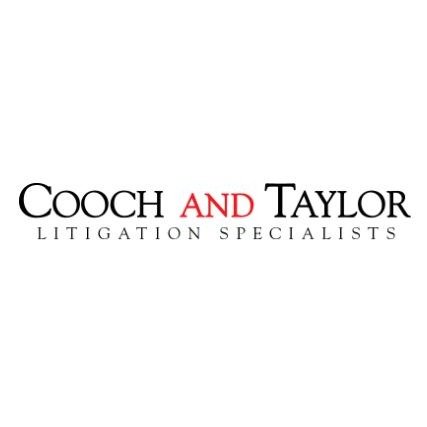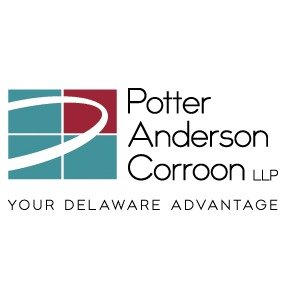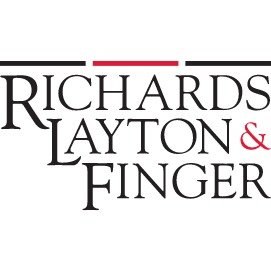Best Government Relations & Lobbying Lawyers in Delaware
Share your needs with us, get contacted by law firms.
Free. Takes 2 min.
Or refine your search by selecting a city:
List of the best lawyers in Delaware, United States
About Government Relations & Lobbying Law in Delaware, United States
Government relations and lobbying involve efforts by individuals, organizations, or businesses to influence government decision-making, primarily through the legislative, executive, or regulatory branches. In Delaware, lobbying activities are regulated by specific state laws designed to ensure transparency, ethical conduct, and compliance with disclosure requirements. Lobbyists are typically responsible for representing clients or interests before public officials and policy makers, with the goal of shaping public policy, legislation, or administrative actions.
Why You May Need a Lawyer
Navigating the complex field of government relations and lobbying in Delaware can present legal challenges for individuals and organizations alike. You may need legal assistance if you:
- Plan to engage in lobbying activities and need to register as a lobbyist or entity in Delaware
- Want to understand compliance with lobbying disclosure and reporting requirements
- Are accused of violating lobbying laws or ethical requirements
- Need guidance on gift rules, campaign contributions, or conflicts of interest
- Operate as a company seeking to influence policy for contract awards or regulatory changes
- Work for a non-profit advocacy organization and have questions about lobbying limits
- Are involved in government contracts and want to ensure your communications remain compliant
- Require advice on federal implications of state-level lobbying activities
- Face an audit, inquiry, or investigation regarding government relations practices
- Want to train staff to avoid accidental violations during interactions with public officials
Experienced legal counsel helps ensure your activities remain within the law, protects your organization’s reputation, and minimizes the risk of costly penalties.
Local Laws Overview
Delaware’s lobbying laws are found within the Delaware Code, primarily under Title 29, Chapter 58. Any individual or business that communicates with public officials to influence legislation, regulation, or government action may be required to register as a lobbyist. Key aspects include:
- Registration: Lobbyists must file a registration statement with the Delaware Public Integrity Commission before engaging in activities. This applies to those who are paid or who receive reimbursement for their efforts.
- Reporting: Lobbyists must submit quarterly activity and expenditure reports, detailing contacts, subjects, and gifts provided to officials. Failure to file reports may result in fines or other sanctions.
- Gift and Expense Limits: Delaware law imposes restrictions on what lobbyists can provide to public officials, including limitations on gifts, meals, and entertainment.
- Public Access: All lobbying reports are public records, increasing transparency around the activities of lobbyists and the influence of special interests.
- Enforcement: The Delaware Public Integrity Commission oversees compliance and investigates potential violations.
Certain activities and individuals, such as private citizens contacting officials about personal matters, may be exempt, but professional, paid, or repeated efforts to affect legislation or regulations generally trigger requirements.
Frequently Asked Questions
What activities are considered lobbying in Delaware?
Any attempt to influence legislation, regulation, or government action through direct communication with public officials can be considered lobbying. This includes in-person meetings, written communications, emails, and phone calls made on behalf of a business, organization, or individual.
Who must register as a lobbyist in Delaware?
Anyone engaging in lobbying as a paid representative or who is reimbursed for lobbying efforts must register with the Delaware Public Integrity Commission before commencing lobbying activity. This includes individual lobbyists and firms representing clients.
What information must be reported by lobbyists?
Lobbyists are required to file quarterly reports detailing the bills, regulations, or government actions on which they lobbied, as well as any expenditures, gifts, or direct contributions made to public officials.
Are there penalties for failing to follow lobbying laws in Delaware?
Yes, violations such as failure to register, not submitting required reports, or breaching gift rules can result in civil fines, removal from the lobbyist registry, and, in some cases, public censure.
Is there a difference between grassroots advocacy and lobbying?
Grassroots advocacy generally refers to broad public campaigns aimed at encouraging others to contact their officials, while lobbying involves direct communication by a representative with officials. Delaware law primarily regulates direct lobbying activities.
Can a business owner lobby government officials without registering?
A business owner advocating solely on their own behalf does not typically have to register. However, if they lobby on behalf of others or are paid to do so, registration and reporting requirements may apply.
How are gifts to public officials regulated?
Lobbyists are subject to specific limitations on providing gifts, meals, or anything of value to legislators and certain government employees. Detailed records and careful compliance are essential to avoid violations.
Are nonprofit organizations subject to lobbying registration?
If nonprofit staff or representatives engage in paid lobbying activities, registration and reporting requirements may apply. There are some exemptions for occasional or voluntary activity, but repeated or organized efforts usually qualify as lobbying.
How can I determine if my activities require compliance with lobbying laws?
If you plan to communicate with state officials on behalf of others in an attempt to affect government decisions and receive compensation or reimbursement, you should consult the Delaware Public Integrity Commission or a legal professional to determine your obligations.
Who regulates lobbying in Delaware?
The Delaware Public Integrity Commission oversees lobbyist registration, reporting, enforcement, and interpretation of Delaware lobbying laws. They provide guidance and educational materials related to compliance requirements.
Additional Resources
For more information and guidance on government relations and lobbying in Delaware, the following resources and organizations are helpful:
- Delaware Public Integrity Commission - Responsible for lobbyist registration, education, and enforcement
- Delaware Code, Title 29, Chapter 58 - Contains the full text of Delaware’s lobbying laws
- Secretary of State, Division of Corporations - For compliance and registration requirements related to business entities
- Delaware State Bar Association - Provides lawyer directories and educational resources
- National Conference of State Legislatures - Information on state-by-state lobbying laws and best practices
Next Steps
If you believe you need legal assistance in the area of government relations and lobbying in Delaware, you should:
- Review your planned activities to determine if they are covered by lobbying laws.
- Consult the Delaware Public Integrity Commission's published materials for guidance on registration and reporting.
- Seek out an attorney or law firm with experience in government relations and lobbying law in Delaware to discuss your specific situation and ensure proper compliance.
- If you represent an organization, consider conducting training for relevant staff to avoid accidental violations.
- If you are under investigation or facing penalties, contact legal counsel promptly to protect your interests and respond appropriately.
Understanding your obligations and obtaining timely legal guidance helps ensure that your advocacy efforts are ethical, effective, and fully compliant with Delaware law.
Lawzana helps you find the best lawyers and law firms in Delaware through a curated and pre-screened list of qualified legal professionals. Our platform offers rankings and detailed profiles of attorneys and law firms, allowing you to compare based on practice areas, including Government Relations & Lobbying, experience, and client feedback.
Each profile includes a description of the firm's areas of practice, client reviews, team members and partners, year of establishment, spoken languages, office locations, contact information, social media presence, and any published articles or resources. Most firms on our platform speak English and are experienced in both local and international legal matters.
Get a quote from top-rated law firms in Delaware, United States — quickly, securely, and without unnecessary hassle.
Disclaimer:
The information provided on this page is for general informational purposes only and does not constitute legal advice. While we strive to ensure the accuracy and relevance of the content, legal information may change over time, and interpretations of the law can vary. You should always consult with a qualified legal professional for advice specific to your situation.
We disclaim all liability for actions taken or not taken based on the content of this page. If you believe any information is incorrect or outdated, please contact us, and we will review and update it where appropriate.
Browse government relations & lobbying law firms by city in Delaware
Refine your search by selecting a city.












